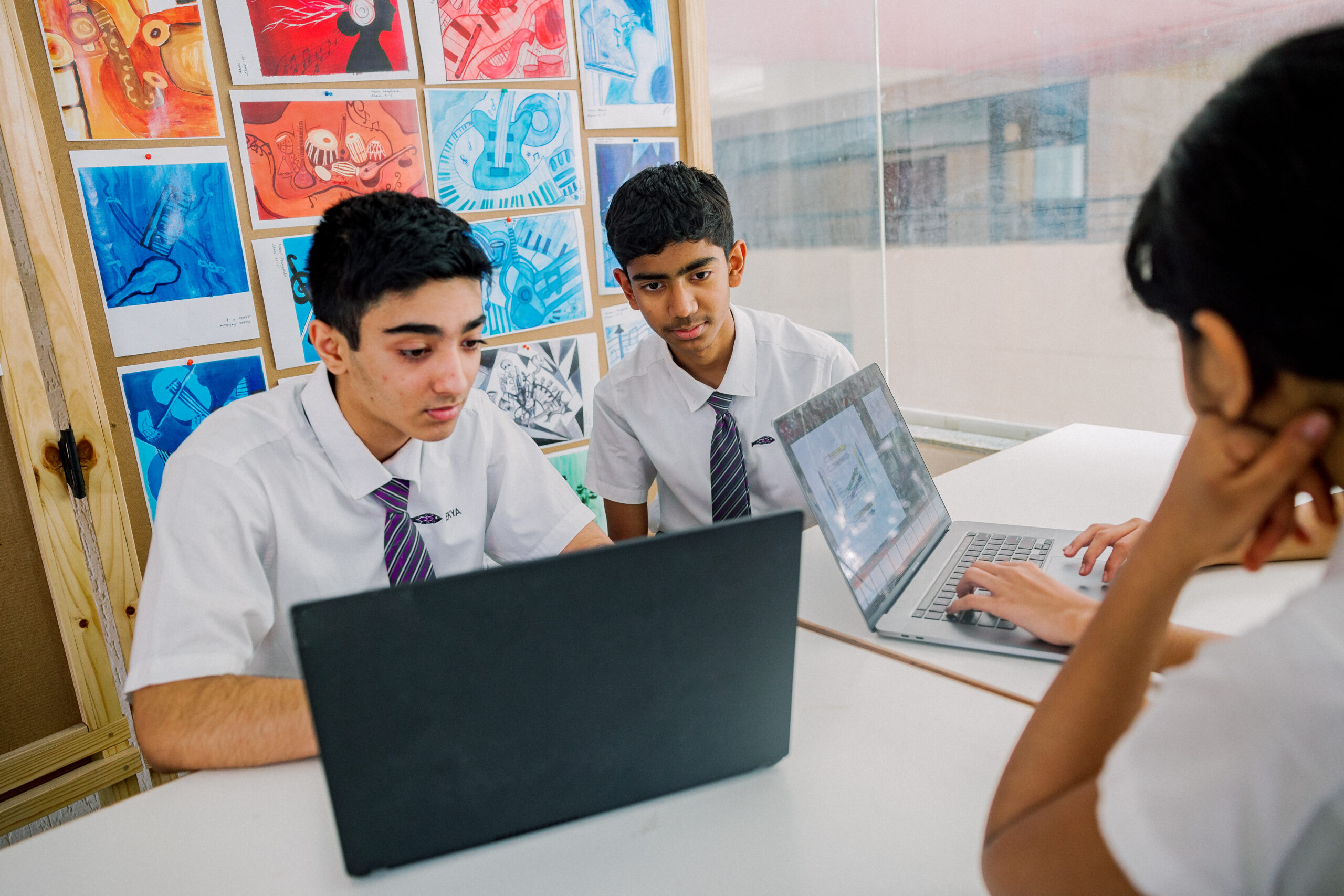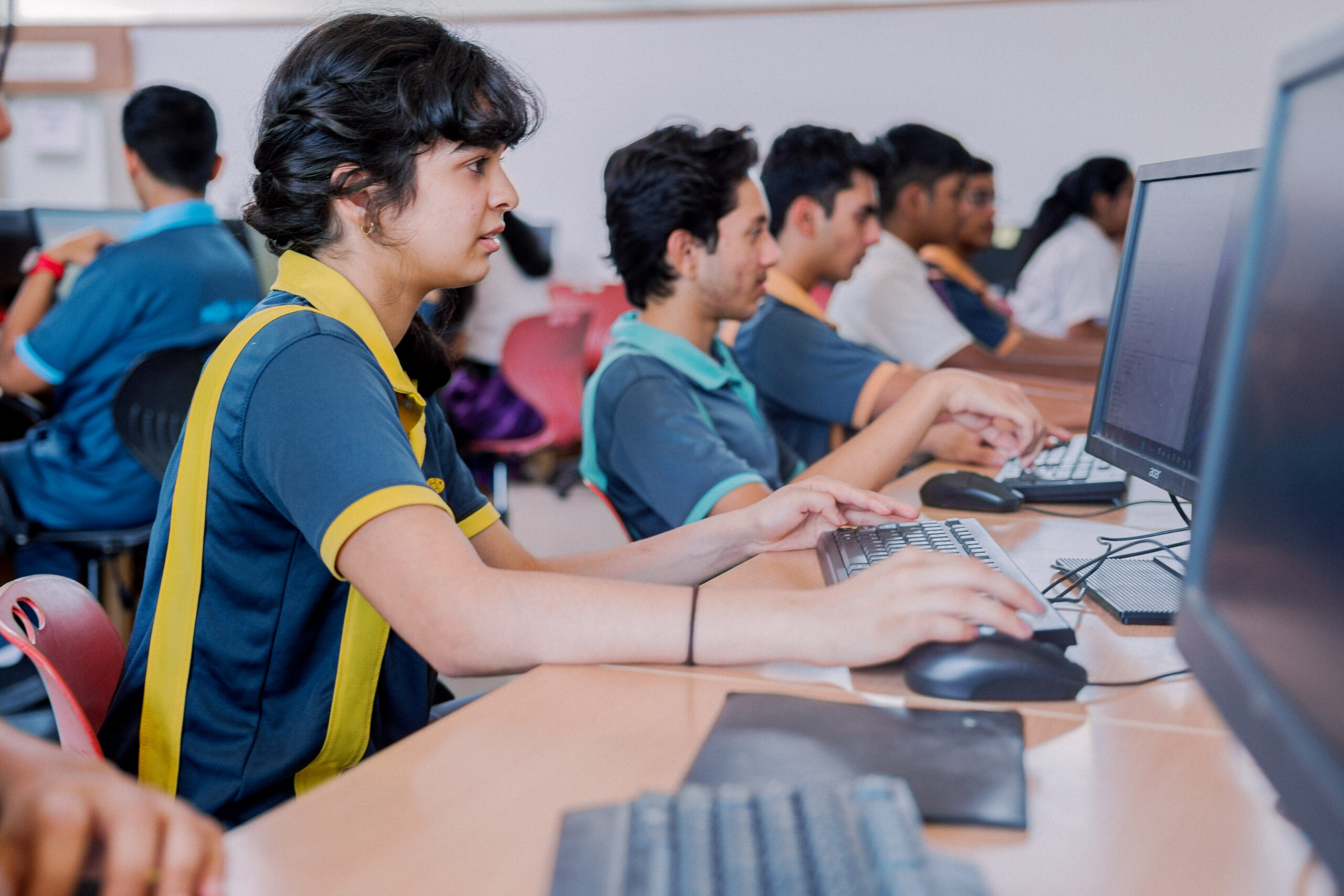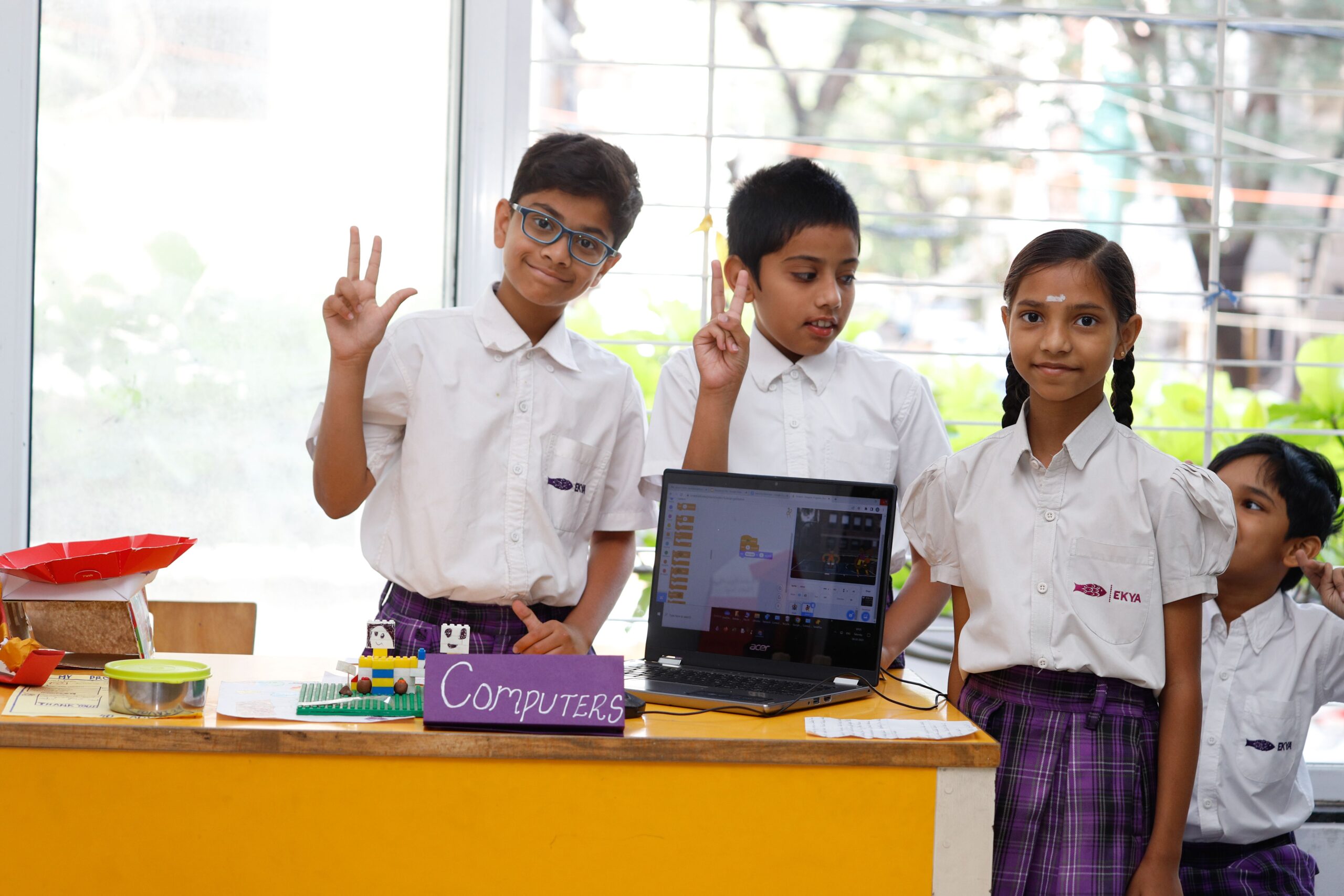Computer Science



Learning Area Purpose
The Computer Science Program equips learners to:
- Be responsible, future-ready digital citizens.
- Collaborate, design, create and implement solutions to real-world problems using technology.
- Communicate ideas about technology and using technology.
- Use critical thinking and computational thinking processes to solve problems.

Key Learning Experiences
Core Topics Across Levels
Instruction covers essential subjects such as problem-solving, programming, physical computing, user-centred design, and data, tailored to Primary, Middle, and Senior blocks.

- Google Workspace Integration: Utilisation of Google Workspace fosters collaborative and innovative learning experiences.
- Programming Proficiency: Skills are developed in block-based programming, HTML/CSS, Java, and Python.
- Electronics and Arduino Exploration: Hands-on experience with Arduino allows practical application of coding and hardware interaction.
- Artificial Intelligence: Introduction to Artificial Intelligence concepts and their applications is provided.
Skill Development
Our curriculum emphasises collaboration, communication, problem-solving, and computational thinking, utilising technology to enhance student experiences.

Emphasis is placed on collaborative projects that build teamwork and interpersonal skills.
Effective communication is cultivated through engaging presentations and discussions.
Problem-solving is integrated across subjects to strengthen critical thinking abilities.
Computational thinking principles are applied in practical, real-world contexts.
Technology is used to create immersive and interactive learning experiences.
Design Thinking and Digital Citizenship
The focus is on nurturing responsible digital citizens and problem-solvers through design thinking challenges, rather than solely producing coders.

- Our curriculum emphasises Digital Citizenship, educating conscientious digital citizens.
- Students engage in authentic tasks that embrace Design Thinking Principles.
- Collaborative projects provide opportunities to solve real-world problems.
- Instruction on Ethical Technology Use is prioritised in everyday life.
Tools in the Computer Science Classroom
Developing programming skills requires effective debugging techniques. Here are some of Ekya’s valuable tools to enhance computer science skills

- Debug the Errors: Students identify and correct errors in code to enhance their debugging skills.
- Ask 3 Before Me: Encourages students to seek help from three peers before approaching the teacher, promoting collaboration.
- Predict the Output: Students make predictions about code execution outcomes, fostering critical thinking and understanding of programming logic.
- Errors and Fixes Organiser: A tool for documenting errors encountered and their solutions, helping students track their learning progress.